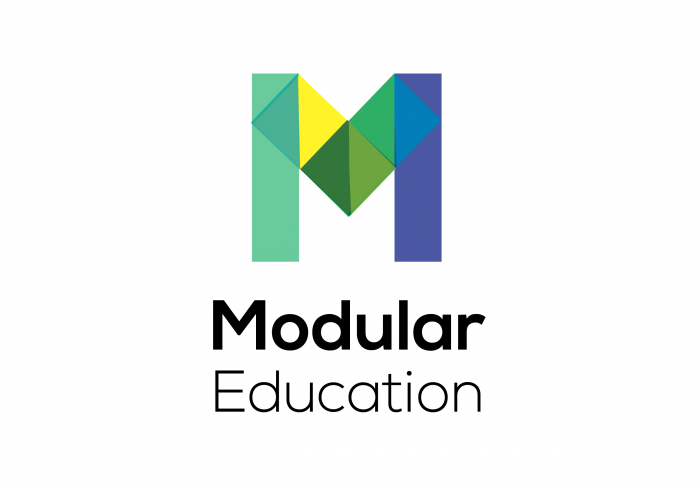Modularity in education started to gain prominence as online learning increasingly became widely accepted. Top Universities around the world began to pay attention to the effect online learning had on their school system and how they may take advantage of online learning to continue to stay ahead in delivering quality education. In 2014, MIT President Rafael Reif even released a letter to initiate and concretize the university’s efforts at taking advantage of the transformation that may affect schools and the structures of their curriculums. Some of the results of their foray are MIT courses on EdX and MITX.
The advancement of technology continues to open up new possibilities as well as enable our old dreams. Long ago, people who wished to learn
As the world adopts new models of learning, we continue to have challenges with our education in Nigeria, especially at the universities. Investment in education is abysmal, universities are poorly run and most of all, learners who attend Nigerian universities often rue the time wasted and wish they have better opportunities to gain quality learning. This is however not peculiar to Nigeria.
The Status Quo
Universities are designed to deliver the complete package required to earn a degree. Therefore, a university needs to have it all for whichever course for which they are accredited. In addition to this, when students enrol for a course, they are required to complete all the credits considered necessary to earn the degree for that particular course.
A school should facilitate learning. Schools in developed countries have found ways to ensure that they offer the best environment and resources required for students who enrol
This is not the case around here in Nigeria. Universities simply do not have the right structures to deliver quality learning. For several courses, students do not have access to the right resources, teaching or support required to excel in those fields. Often, students work hard to finish top of their classes, hoping to eventually gain admissions to schools outside the country to provide them with quality learning and assuage their lost years.
I was not exactly enthusiastic about attending any university when I completed my secondary school education. However, as it became necessary to apply to one, I chose Mechanical Engineering at the University of Ibadan for which I was admitted on merit. While our first year was spent relearning some of the courses we took in secondary
If I decided to take extra classes, I would still have had to go through my original classes, which seemed pointless since I was convinced they added little to me. I imagined a future where you could take classes from any accredited place and pile it up to get a degree. That would mean I had the ability to take courses I considered relevant and in line with the requirement to practice in my field of choice from anywhere and eventually get a degree that certifies my mastery. At that time, it was difficult to see how it could work. Most Nigerian universities in the country were just as poor as my university, while online learning was still in its early days (and data costs made them a high road to learning). However, this remained an important question on my mind as I decided to dedicate myself to seeking solutions to the problem of poor quality of education in Nigeria.
Unbundling Our Classes: Specialization and Accreditation
After several years in the education sector where I have worked in for-profit and non-profit organizations, I may have found some headway in my model of modular education. This will involve unbundling our classes into modular units, encouraging the creation of specialized accredited institutions and creating a unification model to aggregate learnings across different specialized institutions.
The case study is that a person who wants to learn Mechanical Engineering, can obtain the requirements needed for a Mechanical Engineering degree, and apply to learn in not one institution, but across several specialized institutions and all the credits the person obtained from these institutions can be unified into a degree by a single unifying institution. So instead of applying to just the University of Ibadan and be restricted to taking all my courses there, I may take courses in one private institute that offers Thermodynamics, another institute that specializes in Mechanics of Machines, another institute that specializes in Engineering Design and yet another private institute that specializes in Fluid Mechanics. When I may have passed the requirements in these different specialized accredited institutions, I may have the University of Ibadan as my unifying institution to award me a certificate in Mechanical Engineering if it deemed me qualified.
For this to happen, we must have unbundled our classes and split them into modular units that allow institutes to spring up and focus on a string of topics as their specialization. Specialization is the huge catalyst to modularity. As modular education requires
Modularity will lead to
Specialization gives another critical edge in that it is much easier to set up a small specialized institute than it is to set up a university with all its facilities, thus inspiring more private investment. This becomes even more important due to the poor investment the educator sector currently suffers.
Universities may still retain their abilities to award degrees. They may decide to set up examinations to assess the learning provided in these private academic institutes and award the right grades to students who wish to earn their certificates. There may also be new private institutions that serve to unify credits awarded across these decentralized academic/training institutes into a degree. This may require that they work closely with these academic institutes. These new institutions may either set up assessments to help award the right
The benefits of small specialized institutes are the same as the benefits of other kinds of specialization; setting the stage for the development of high levels of competence, a concentration of equipment, and efficiency. The result is instead of average poorly run generalist facilities all over the country, we have specialized world-class ones.
It is Never the Smooth Ride It Promises to Be
Some educational facilities are costlier to set up than others. One obstacle to my theory on modularity is the question of how much I can guarantee the supply of students to these facilities to ensure their commercial viability. Ultimately, private investment in education will only be encouraged if it at least produces a modest return on investment. I cannot say I have figured how this may work commercially, but I know that such investment in education cannot be driven only by the drive to make money. Due to the shortage of skills and the yearning to provide quality education in Africa, early lukewarm commercial activity will eventually be compensated.
Cost of learning can also be high at the start as each institute strives to recover their investment while maintaining the quality of their facilities. However, this will eventually drop as technology provides more support to learning and more people throng into these facilities for a scoop of good education. New education financing models may also spring up to support this diversified learning approach.
The Undeniable Positive
Instead of trying to build a university that is good with too many things, small institutes can now focus on being the best in a particular subject area. Compare this to hospitals. Hospitals focused on cancer are likely to have the better resources to tackle cancer than hospitals that provide every kind of treatment.
This new approach also lowers the barrier to investment in education. Rather than struggle to build a university, investors can now set up smaller units that can deliver quality learning and research in key academic areas. Accreditation will also be easier to attain.
The Big Picture
Modularity in education allows for flexibility. More, it improves the options that a student has to complete his or her education. For examples, although most of my classmates enrolled for Mechanical Engineering, most of us sought different specializations. Some wanted aeronautical engineering, some wanted structural engineering, some sought specialization in automobile engineering or industrial design, some wanted robotics and automation, and so on. Universities often struggle with meeting these demands. With modularity, learners can access several quality options of completing their degrees in specializations of their choices.
Modularity enables complex systems to be broken into better managed and better maintained autonomous units. As we come to the complete grasp of modular education, we will start to enjoy a more diverse approach to learning both offline and online as learners can now truly fulfil their personal learning requirements.
What makes modularity work is a strong unification process that ensures all the pieces once separated can be effectively combined for their intended purpose. The ability to integrate these independent modules of a person’s learning journey to provide a requisite degree or certification.
Modularity also speeds up changes. When there are new developments in academic fields, it will be easier to effect these changes across several small units than cumbersome departments in universities.
Not entirely new; Not entirely old
We already have glimpses of specialization and decentralization in education. There are several institutes with focused research and learning in specific fields. What is not common is the structure to allows a
Progress with online learning is also offering possibilities of modular education. In fact, online learning has shown the greatest promise in this area. My new theory suggests a structure to accommodate these possibilities and offer an alternative form of learning which may launch the world into another style of modern learning fostered by the advancement of technology and process innovation.
Conclusion
Creating a dynamic learning system that easily responds to change in technology is becoming more important as the world’s technological advancement keeps accelerating exponentially. Large institutions especially in the less developed countries may struggle to catch up. When given the freedom to set up new focused modular institutes, we may have better responses to technological advancement and have access to modern and updated learning spaces. There may be several challenges to the implementation of the modular education model, however, with the promise that online learning is beginning to show- affording learning across different disciplines and institutes, it may be time to consider institutionalizing the modular models across the education sector.
Habeeb Kolade
While I had no idea that today is the International Day of Education, it is great to find out and share my theory on the first International Day of Education. Everywhere in the world, there is the need to support transformative actions for inclusive, equitable and quality education for all. Quality education is required for poverty eradication, improving health outcomes, promoting gender equality, environmental sustainability and building peaceful and resilient societies. I hope this day further fosters the development of education sectors across the world.

